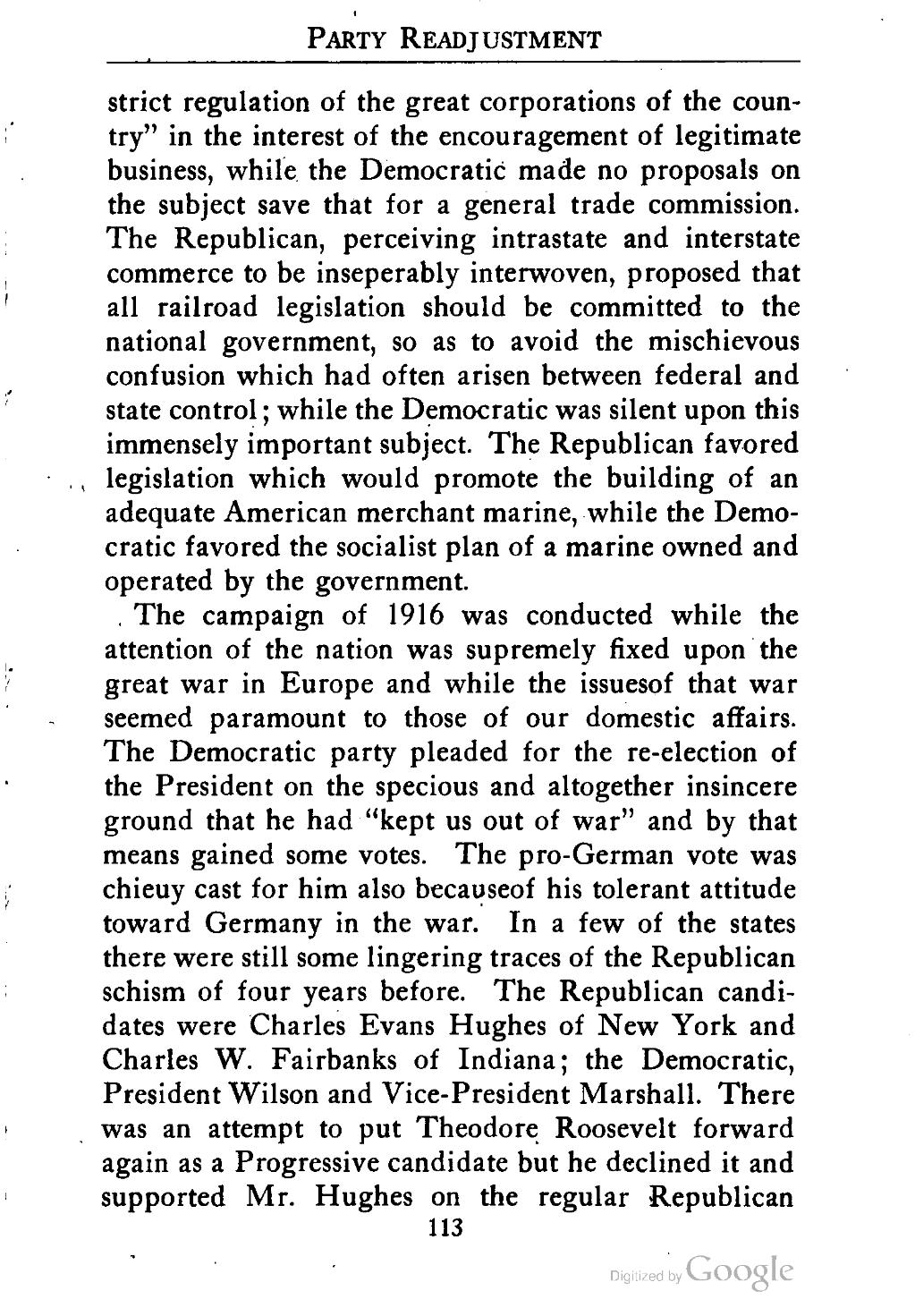Party Readjustment
strict regulation of the great corporations of the country” in the interest of the encouragement of legitimate business, while the Democratic made no proposals on the subject save that for a general trade commission. The Republican, perceiving intrastate and interstate commerce to be inseparably interwoven, proposed that all railroad legislation should be committed to the national government, so as to avoid the mischievous confusion which had often arisen between federal and state control; while the Democratic was silent upon this immensely important subject. The Republican favored legislation which would promote the building of an adequate American merchant marine, while the Democratic favored the socialist plan of a marine owned and operated by the government.
The campaign of 1916 was conducted while the attention of the nation was supremely fixed upon the great war in Europe and while the issues of that war seemed paramount to those of our domestic affairs. The Democratic party pleaded for the re-election of the President on the specious and altogether insincere ground that he had “kept us out of war” and by that means gained some votes. The pro-German vote was chieuy cast for him also because of his tolerant attitude toward Germany in the war. In a few of the states there were still some lingering traces of the Republican schism of four years before. The Republican candidates were Charles Evans Hughes of New York and Charles W. Fairbanks of Indiana; the Democratic, President Wilson and Vice-President Marshall. There was an attempt to put Theodore Roosevelt forward again as a Progressive candidate but he declined it and supported Mr. Hughes on the regular Republican
113
